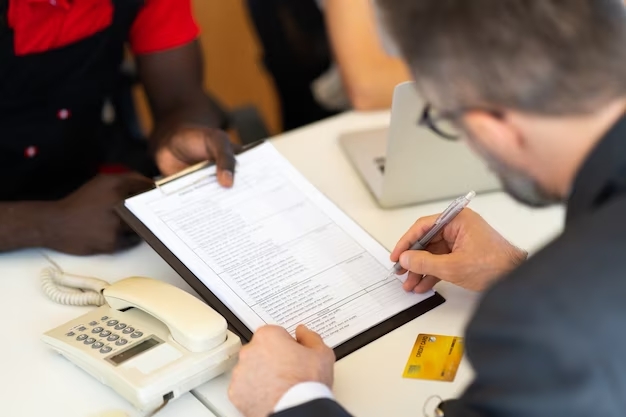Wedding Certificate and Registration
We facilitate the ceremonial union of marriage, incorporating rituals and traditions aligned with your religion, all within a timeframe of 4-5 hours. Additionally, we assist you in completing the necessary marriage registration within your specific jurisdiction.
processes:
- Seek guidance from a matrimonial attorney Conduct the marriage ceremony Complete the marriage registration process at the court Obtain the official marriage certificate

How Y/our Lawyer helps in Marriage Registration ?
Our consultant will discuss the issue over a 24X7 helpline .
Step 1
Our consultant will discuss the issue over a 24X7 helpline .
Step 1
A detailed analysis of your case will be done by an experienced lawyer.
Step 2
You will be able to track your case with a personal account
Step 3
Overview
Whether you opt for a traditional marriage or a court marriage, the registration of your marriage holds significant importance. To initiate the marriage registration process in India, the couple can visit the office of the Sub-Divisional Magistrate, responsible for the jurisdiction where the marriage took place or where either party has resided for a minimum of 6 months. In the subsequent article, we provide a comprehensive guide outlining the required documents for the marriage registration procedure. Furthermore, we delve into the specific processes involved in registering marriages under the Hindu Marriage Act and the Special Marriage Act.

Documentation Requirements for Registering a Marriage
The necessary documents for marriage registration in India may vary slightly from one state to another, but certain common documents are required across all districts.
Registration Form: The couple must complete the registration form and submit it to the marriage registrar in the district where either party has resided for at least one month. The application form must be signed by both individuals.
Birth Proof: A document proving the date of birth such as a birth certificate, matriculation certificate, or passport is required. It is important to note that the legal marriage age for women in India is now 21 years (previously 18 years).
Consent: Both parties must be capable of providing valid consent and have a sound mind.
Residential Proof: Proof of residence for both parties, such as a Voter ID, PAN Card, Aadhar Card, Electricity Bill, or Ration Card, is required.
Marriage Certificate: A certificate from the institution where the marriage took place (e.g., a religious place) is necessary to prove the solemnization of the marriage.
Registration Fees: For marriages registered under the Hindu Marriage Act, a fee of Rs 100 is required, while Rs 150 is applicable for marriages registered under the Special Marriage Act.
Photographs: Recent passport-size photographs of both individuals, as well as a photograph of the marriage ceremony, if it has taken place, should be submitted.
Invitation Card (optional): A copy of the marriage invitation card can be provided if available.
Prohibited Degrees: The parties must declare that they do not fall under the prohibited degrees of relationship as defined by the Hindu Marriage Act or Special Marriage Act.
Divorce Decree (if applicable): If either party has been previously divorced, an attested copy of the divorce decree must be attached to the application form.
Witnesses: Two witnesses must be present at the sub-registrar office during the marriage registration process.
Affidavit: An affidavit specifying the place, date, time of marriage, as well as the marital status and nationality of both parties, should be attached along with the application form.
Please note that specific requirements and procedures may vary depending on the state or district where the marriage is being registered. It is advisable to consult the local marriage registrar or relevant authorities for accurate and up-to-date information.
Marriage Registration in India
Marriage registration in India is carried out under the provisions of the Hindu Marriage Act and the Special Marriage Act, as mandated by the Supreme Court in 2006. Registering a marriage is essential for legal recognition, and the process can be completed through online or offline methods.
Online Registration: In recent times, online marriage registration has gained popularity due to its convenience, cost-effectiveness, and time-saving advantages. This method is especially beneficial during the pandemic, as it eliminates the need for standing in long queues. The following steps outline the process of online marriage registration:
- Visit the official government website of the applicant’s respective home state.
- Locate the marriage registration form on the website.
- Fill in the personal and contact details of both parties.
- Complete the form and submit it.
- After form submission, the Marriage Registrar will issue a summons with a specified date and time.
- On the designated date, both parties, accompanied by two witnesses, must appear at the Registrar’s office with all the required documents.
Under the Hindu Marriage Act, the Marriage Registrar typically sends the date and time for registration within 15-30 days of form submission. However, for registration under the Special Marriage Act, the process may take up to 60 days.
It is important to note that specific procedures and requirements may vary across different states in India. It is advisable to visit the official government website or consult the relevant authorities for accurate and up-to-date information.
Registering a Marriage Offline

The Hindu Marriage Act provides the option for couples, regardless of their religion, to register their marriage under this Act or the Special Marriage Act. Both Acts are applicable to all Indian citizens, but specifically allow Hindu, Sikh, Jain, or Buddhist individuals to apply for marriage registration. Couples whose marriage has been solemnized can apply for registration by visiting the sub-registrar office where the marriage took place or where either partner has resided for more than 6 months. Hindu Marriages follow the customs and rituals of the respective parties.
The Special Marriage Act, 1954, also allows Indian citizens to register their marriage. This Act requires solemnization by a marriage officer, and after filling and submitting the form, the marriage takes 60 days to be registered. A notice regarding the marriage registration is displayed for 30 days, and if no objections are received, the marriage is registered. Unlike the Hindu Marriage Act, the Special Marriage Act does not require any religious ceremony for the completion of marriage registration. It provides an alternative option for couples who are not restricted from registering their marriage under the Hindu Marriage Act.